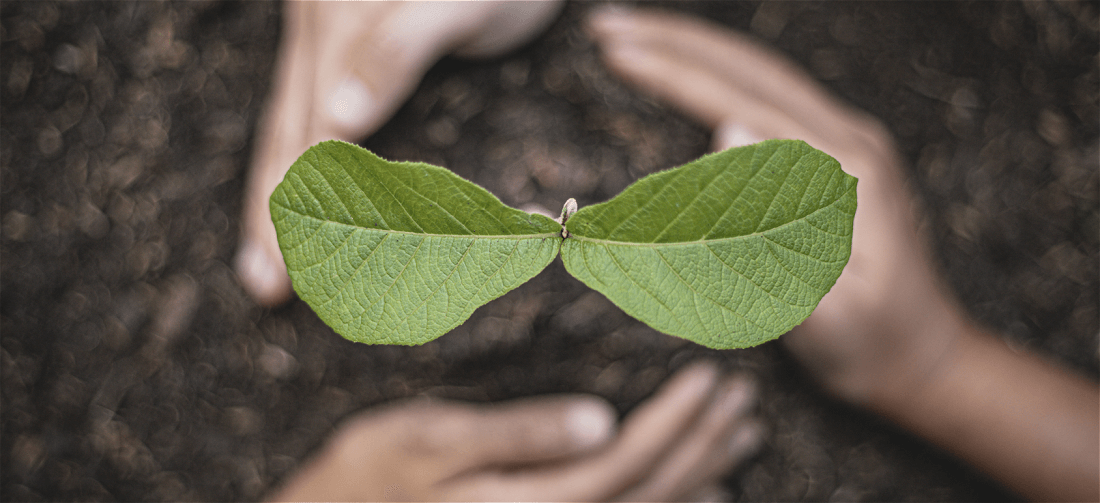
Soil. It's that brown stuff that gets stuck under your fingernails when you play in the garden. Not very glamorous, right? But what if I told you that dirt could determine the fate of human civilization? Let me dish the dirt on why soil is so important.
Beneath the surface lies a complex ecosystem teeming with life. Microbes, fungi, insects and worms work together to break down organic matter and release vital nutrients. This biological activity forms the foundation for all terrestrial life. So soil is much more than just dirt - it's the very essence of life on land.
The Secret Life of Soil
See, soil is made up of tiny microorganisms that help plants grow. Without healthy soil, we can't grow food. And without food, well, game over for humanity.
These microorganisms have fascinating relationships with plants. Some bacteria convert atmospheric nitrogen into forms that plant roots can absorb. Mycorrhizal fungi extend the reach of root systems, helping plants access more water and nutrients. In return, plants feed sugars to their microscopic partners. It's a beautiful symbiosis that sustains our entire food supply.
Lessons From Our Ancestors
Our ancestors knew this secret. They worked hard to build up quality topsoil so they could grow bountiful crops. The early Indian communities even worshipped soil as sacred! Meanwhile, the Indigenous people of the Amazon engineered their own rich, black soil called terra preta to cultivate the rainforest. These ancient dirt devotees thrived because they cooperated with nature to care for the soil.
Many traditional farming practices, like intercropping diverse plants and allowing fields to lie fallow, helped maintain soil fertility over centuries. Today, we're rediscovering the wisdom in these old ways. Practices like cover cropping and composting imitate natural cycles, giving back to the soil as much as we take.
Modern Missteps
But today, modern farming practices are causing tons of soil degradation. Chemical fertilizers deplete the soil over time, leaving fields barren and depleted. And practices like over-irrigation cause erosion, washing away precious topsoil. This damage means lower crop yields and nutrient deficiencies in our food. Not appetizing!
Industrial agriculture often prioritizes short-term yields over long-term sustainability. Monoculture farming, where vast fields grow only one crop, reduces biodiversity both above and below ground. Relentless tilling and heavy machinery compact the soil, suffocating life within it. If we continue down this path, the consequences could be catastrophic.
The Looming Crisis
The loss of arable land is a recipe for disaster down the road. In 50 years or less, we could face major global food shortages if soil health isn't made a priority. And those who control the remaining quality farmland could hold major leverage over humanity!
Already, over one third of the world's land is degraded. Desertification creeps outward, claiming millions of acres of farmland each year. Feeding a growing population on a shrinking area of arable land is a daunting prospect. But there is hope, if we act now to restore degraded lands and safeguard the soil we still have.
Nurturing Our Future
The solution? We need to start treating soil like the precious resource it is. Sustainable techniques like crop rotation, organic fertilizers, and reduced tilling can go a long way. And we can't underestimate the smallest soil organisms that make growing food possible in the first place.
Shifting to regenerative agriculture could sequester carbon, increase biodiversity and improve water retention - all while producing nutrient-dense food. Agroforestry systems incorporate trees and shrubs, preventing erosion and providing habitat. Even home gardeners can build soil health by Sheet mulching and avoiding pesticides. Every patch of earth matters.
Conclusion: Respecting Our Roots
So while dirt may seem lowly, it's arguably the most valuable substance on Earth. By taking care of our soil, we take care of ourselves and future generations. What could be more important than that? After all, we all depend on the fruits—and vegetables, grains and nuts—of good, old-fashioned dirt.
Just like a towering tree depends on its roots, human civilization is inextricably linked to the soil beneath our feet. It's time we remembered our own roots and started treating soil with the reverence it deserves. Our ancestors knew to work in cooperation with nature. Today, armed with both ancient wisdom and modern science, we can become responsible stewards of the land. The future depends on it.




Leave a Reply